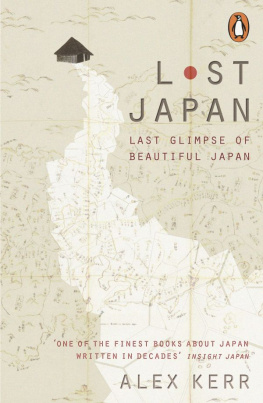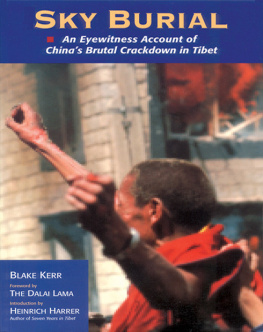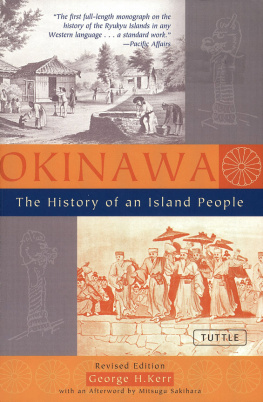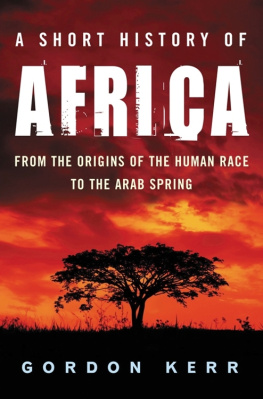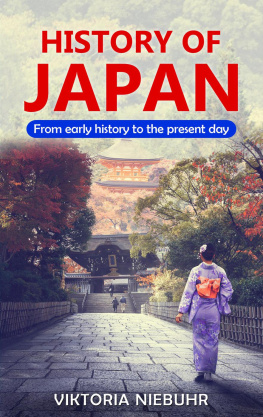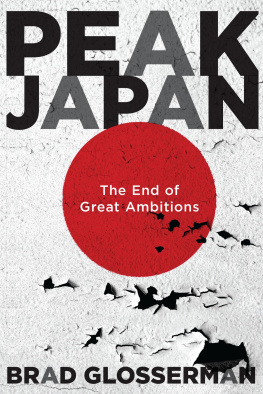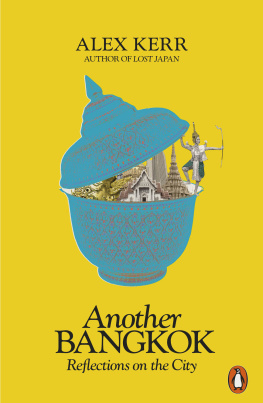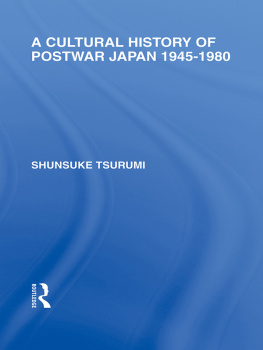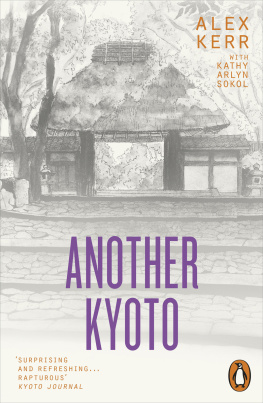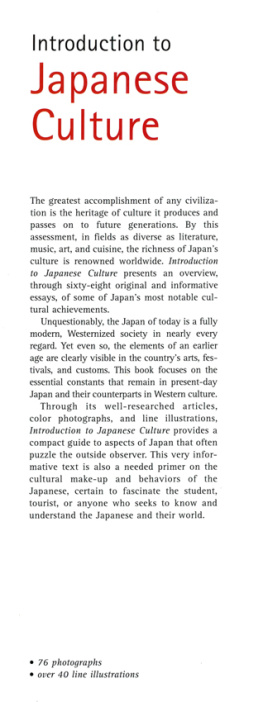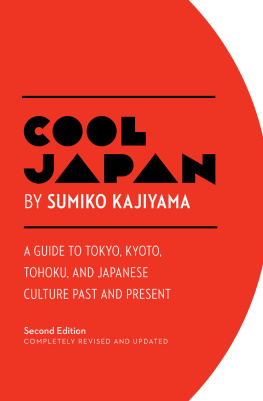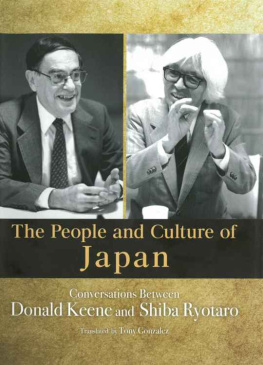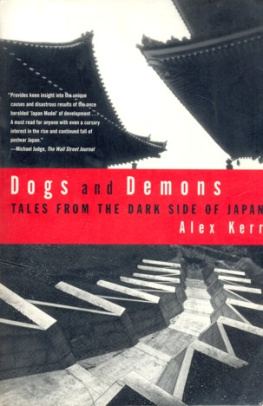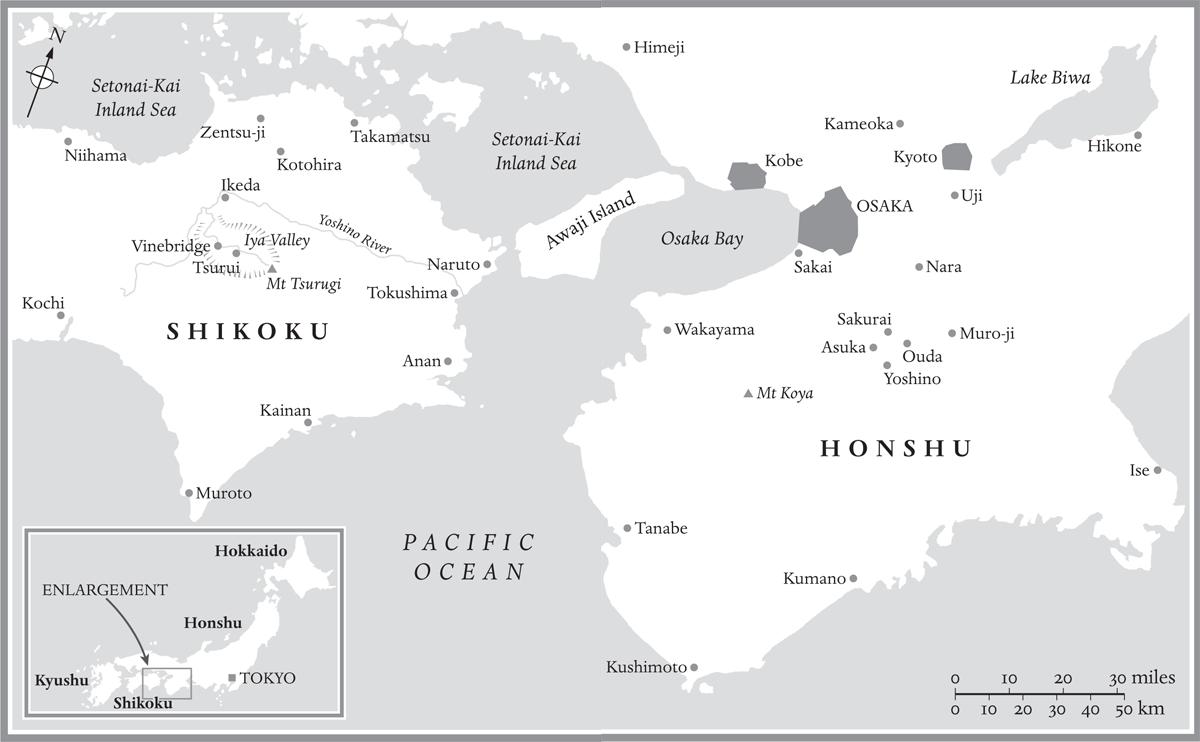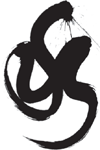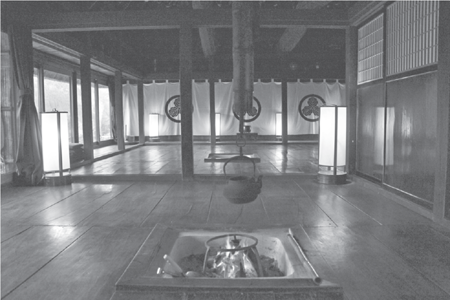Contents
Alex Kerr
LOST JAPAN
Last Glimpse of Beautiful Japan
Translated by Alex Kerr and Bodhi Fishman
PENGUIN BOOKS
UK | USA | Canada | Ireland | Australia
India | New Zealand | South Africa
Penguin Books is part of the Penguin Random House group of companies whose addresses can be found at global.penguinrandomhouse.com.
First published by Lonely Planet Publications 1996
Published with a new Preface in Penguin Books 2015
Text copyright Alex Kerr, 1993
Adapted from Utsukushiki Nippon no Zanzo (Shincho-sha, Tokyo, 1993) copyright Alex Kerr, 1996, 2015
Calligraphies Alex Kerr, 2015
Cover from University of California, Berkeley.
Calligraphy by Alex Kerr
The moral right of the author has been asserted
ISBN: 978-0-141-97975-5
PENGUIN BOOKS
LOST JAPAN
Alex Kerr was born in Bethesda, Maryland, USA, in 1952. He first came to Japan when his father, a naval officer, was posted to Yokohama from 1964 to 1966. He has lived in Kameoka, near Kyoto, since 1977. Alex holds degrees in Japanese Studies from Yale University and Chinese Studies from Oxford University, and is a passionate and knowledgeable collector of East Asian art.
In the years after purchasing the house Chiiori that appears in Lost Japan, Alex went on to restore dozens of old houses in Kyoto and across Japan in an effort to revive beautiful but declining rural regions. The non-profit organization he founded, Chiiori Trust, today manages restored houses in Iya and in several other prefectures.
Alex writes and lectures in Japanese, and is author of many books, including Dogs and Demons (2000), outlining the impact of public works on Japans landscape; Living in Japan (2006), introducing old and contemporary houses; and Bangkok Found (2010), describing the city as Alex experienced it since first visiting Thailand in the 1970s.
The original edition of Lost Japan, written in Japanese, won the 1994 Shincho Gakugei Literature Prize for the best work of non-fiction published in Japan. Alex is the first foreigner to win this prestigious award. After publication in English based on a translation by Bodhi Fishman, the book won the Asia-Pacific Publishers Award, Gold Prize for Best Translation of 1996.
THE BEGINNING
Let the conversation begin...
Follow the Penguin Twitter.com@penguinukbooks
Keep up-to-date with all our stories YouTube.com/penguinbooks
Pin Penguin Books to your Pinterest
Like Penguin Books on Facebook.com/penguinbooks
Listen to Penguin at SoundCloud.com/penguin-books
Find out more about the author and
discover more stories like this at Penguin.co.uk
Chinese Dynasties
Zhou 1100221 BC
Qin 221206 BC
Han 206 BC 220 AD
Three Kingdoms 220280
Jin 265420
Southern dynasties 420589
Northern dynasties 386581
Sui 589618
Tang 618907
Later Liang 907923
Later Tang 923936
Later Jin 936946
Later Han 947950
Later Zhou 951960
Liao 9161125
Song 9601279
Western Xia 10381227
Jin 11151234
Yuan (Mongol) 12711368
Ming 13681644
Qing (Manchu) 16441911
Preface
It has been twenty-four years since I sat down in January of 1991 to write the first of the articles that were later to become the book Lost Japan. I would like to say that since then Ive learned and seen much, and now have a new perspective on it all. And yet, looking back, nothing has changed!
Twenty-four years later, Im still just where I was when, hiking in the hills of Iya Valley in 1973, I pushed open the door of the house Chiiori and saw the dusty black floors and huge old beams sweeping overhead. But Ive got the math wrong. That was forty-two years ago.
I found Chiiori just in time. During the ensuing years, I was to witness the gradual disappearance of Japans delicate natural landscape and old towns of wood, tile, bamboo, and thatch. If anything, the pace of change increased in scale and speed in the 2000s, leaving Iya Valley and Chiiori as remnants of a vanished world. I still own Chiiori, and after all these years, on entering that old room and smelling the smoky irori floor hearth, my heart leaps up as it always did. In the intervening years, Ive seen dozens, hundreds, of old houses, and never found anything else like Chiiori.
Lost Japan itself has lived on. Its still in publication in the original 1993 Japanese version (titled Last Glimpse of Beautiful Japan), and with the exception of this last year as it transited between publishers, the English version never fell out of print. For the translation, Im indebted to Bodhi Fishman. Starting in 1994 I set out to do an English translation myself, but found that not even one paragraph would go into English acceptably. When I wrote the original articles, I was thinking exclusively of a Japanese audience. For readers outside Japan, the text would have to be radically revised. It was a sobering experience for someone who had spent decades blithely translating other people. Baffled by my inability to translate myself, I let the book sit for almost two years. Finally, in 1996 Bodhi came to my aid with a translation that captured the mood of the original. I revised this, cutting some chapters and expanding others; Bodhi edited the revision; and thats how Lost Japan came to be.
The book has brought thousands of visitors to Iya, and many friends into my life. Two decades and several books later, the world described in Lost Japan is still my starting point.
If anything has changed, it is that in recent years Ive had the chance to put into practice what I had merely dreamed of and spoken about in the 90s. This was made possible by the business experience gained when Trammell Crow dragged me into helping with his real estate investment ventures in the Bubble Era of the late 80s. That bit of time I spent working in the real world allowed me to build, eventually, the balance that Tamasaburo describes in his Afterword.
Starting in 2004 I began restoring old machiya town houses in Kyoto, not as historical showpieces, but fitted out with modern amenities heating, cooling, nice baths and toilets and so forth, so that people today could enjoy them in comfort. We rented these out for visitors to stay in when they visited Kyoto. After that I went on to restore houses in rural areas around Japan, and finally Chiiori itself in 2012.

